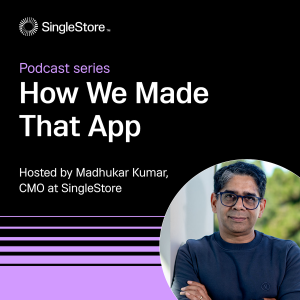
Tuesday Apr 02, 2024
Revolutionizing Analytics Through User Privacy with Jack Ellis
In this episode of How We Made That App, host Madhukar welcomes Jack Ellis, CTO and co-founder of Fathom Analytics, who shares the inside scoop on how their platform is revolutionizing the world of web analytics by putting user privacy at the forefront. With a privacy-first ethos that discards personal data like IP addresses post-processing, Fathom offers real-time analytics while ensuring user privacy. Breaking away from the traditional cookie-based tools like Google Analytics. Jack unpacks the technical challenges they faced in building a robust, privacy-centric analytics service, and he explains their commitment to privacy as a fundamental service feature rather than just a marketing strategy.
Jack dives into the fascinating world of web development and software engineering practices. Reflecting on Fathom's journey with MySQL and PHP, detailing the trials and tribulations of scaling in high-traffic scenarios. He contrasts the robustness of PHP and the rising popularity of frameworks like Laravel with the allure of Next.js among the younger developer community. Jack also explores the evolution from monolithic applications to serverless architecture and the implications for performance and scaling, particularly as we efficiently serve millions of data points.
Jack touches on the convergence of AI with database technology and its promising applications in healthcare, such as enhancing user insights and decision-making. Jack shares intriguing thoughts on how AI can transform societal betterment, drawing examples from SingleStore's work with Thorn. You don’t want to miss this revolutionizing episode on how the world of analytics is changing!
Key Quotes:
- “When we started selling analytics people they were a bit hesitant to pay for analytics but over time people have started valuing privacy over everything And so it's just compounded from there as people have become more aware of the issues and people absolutely still will only use Google Analytics but the segment of the market that is moving towards using solutions like us is growing.”
- “People became used to Google's opaque ways of processing data. They weren't sure what data was being stored, how long were they keeping the IP address for. All of these other personal things as well. And we came along and we basically said, we're not interested in that. tracking person A around multiple different websites. We're actually only interested in person A's experience on one website. We do not, under any circumstances, want to have a way to be able to profile an individual IP address across multiple entities. And so we invented this mechanism where the web traffic would come in and we'd process it and we'd work out whether they're unique and whatever else. And then we would discard the personal data.”
- “The bottleneck for most applications is not your web framework, it's always your database and I ran through Wikipedia's numbers, Facebook's numbers and I said it doesn't matter, we can add compute, that's easy peasy, it's always the database, every single time, so stop worrying about what framework you're using and pick the right database that has proven that it can actually scale.”
- “If you're using an exclusively OLTP database, you might think you're fine. But when you're trying to make mass modifications, mass deletions, mass moving of data, OLTP databases seem to fall over. I had RDS side by side with SingleStore, the same cost for both of them, and I was showing people how quickly SingleStore can do stuff. That makes a huge difference, and it gives you confidence, and I think that you need a database that's going to be able to do that.”
Timestamps
- (00:55) Valuing consumer’s privacy
- (06:01) Creating Fathom Analytics' architecture
- (20:48) Compounding growth to scale
- (23:08) Structuring team functions
- (25:39) Developing features and product design
- (38:42) Advice for building applications
Links
No comments yet. Be the first to say something!